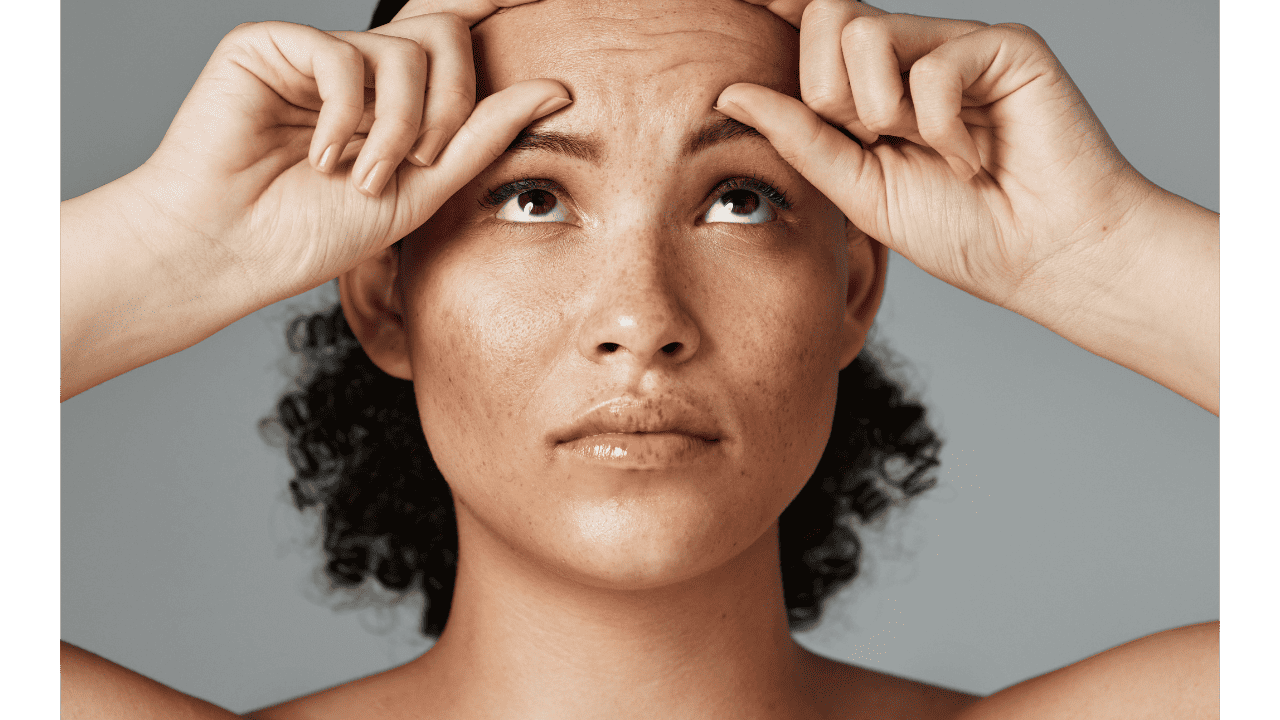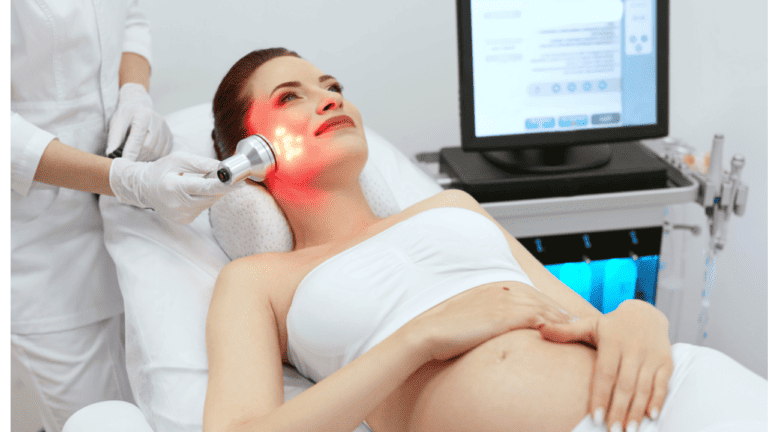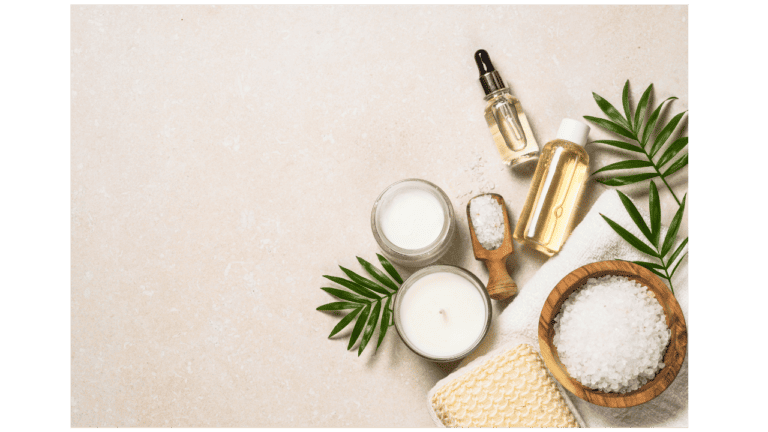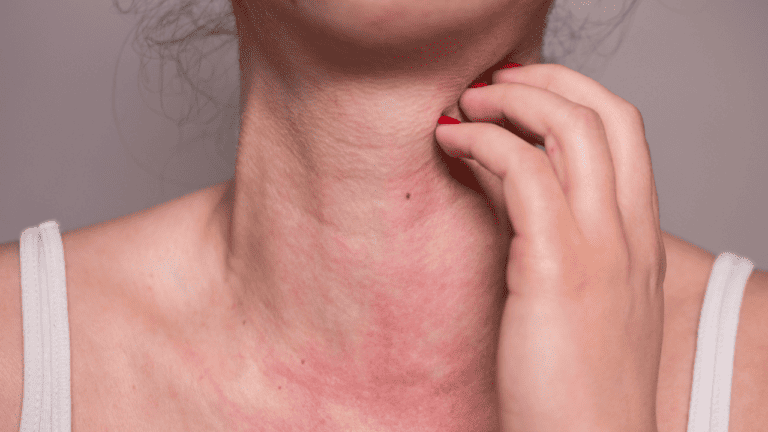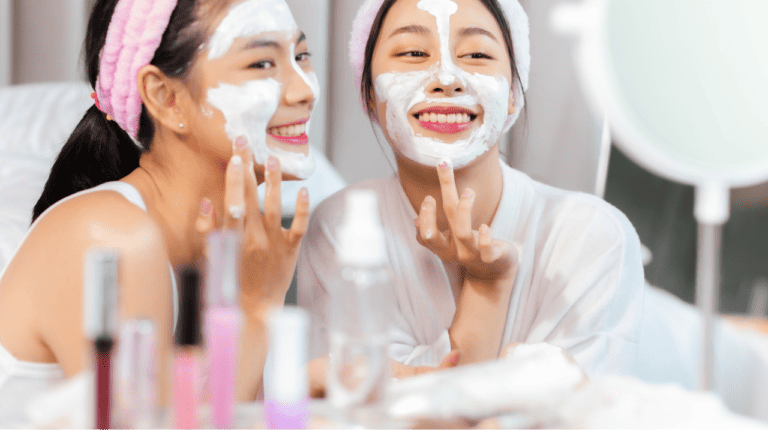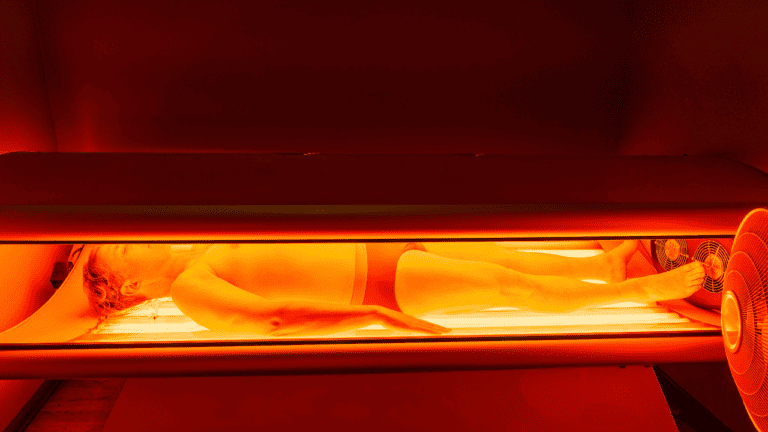As people age, their skin goes through a natural aging process that causes the skin to become thinner, drier, and less elastic. This process is largely influenced by genetics, but environmental factors such as sun exposure and lifestyle choices can also accelerate the aging process. The good news is that there are a variety of skincare techniques and products that can help to mitigate the effects of aging on the skin.

Understanding Skin Aging
The first step in combating aging skin is to understand the process itself. Skin aging is a complex process that involves both intrinsic and extrinsic factors. Intrinsic aging is the natural aging process that occurs over time, while extrinsic aging is caused by external factors such as sun exposure, pollution, and lifestyle choices. By understanding the factors that contribute to skin aging, individuals can take steps to protect their skin and slow down the aging process.
The Role of Skincare in Aging
Skincare plays a crucial role in combating the signs of aging. A good skincare routine can help to protect the skin from environmental stressors, provide hydration and moisture, and deliver anti-aging ingredients that can help to reduce the appearance of fine lines and wrinkles. By incorporating a variety of skincare techniques and products into their routine, individuals can help to keep their skin looking healthy and youthful.
Key Takeaways
- Skincare plays a crucial role in combating the signs of aging by protecting the skin from environmental stressors, providing hydration and moisture, and delivering anti-aging ingredients.
- Understanding the factors that contribute to skin aging can help individuals take steps to protect their skin and slow down the aging process.
- A good skincare routine can help individuals keep their skin looking healthy and youthful.
Understanding Skin Aging

As people age, their skin undergoes a number of changes that can result in wrinkles, fine lines, and other signs of aging. Understanding the aging process and the genetic and environmental factors that contribute to it can help people take steps to minimize these effects and maintain healthy, youthful-looking skin.
The Aging Process
Aging is a natural process that affects all parts of the body, including the skin. Intrinsic aging, also known as chronological aging, occurs as a result of the passage of time and is influenced by genetics. Over time, the skin loses collagen and elastin, two proteins that help keep it firm and elastic. This can lead to sagging, wrinkles, and other signs of aging.
Extrinsic aging, on the other hand, is caused by environmental factors such as sun exposure, smoking, and pollution. These factors can accelerate the aging process and cause additional damage to the skin. For example, exposure to ultraviolet (UV) radiation from the sun can cause the skin to become discolored, dry, and rough.
Genetic and Environmental Factors
In addition to the natural aging process, a person’s genetics and environment can also play a role in how their skin ages. For example, people with fair skin and light-colored eyes may be more susceptible to sun damage and premature aging. Similarly, people who smoke or are exposed to secondhand smoke may experience more rapid skin aging.
Other environmental factors that can contribute to skin aging include air pollution, stress, and poor nutrition. For example, a diet that is high in sugar and processed foods may contribute to skin damage and premature aging.
Overall, understanding the factors that contribute to skin aging can help people take steps to protect their skin and minimize the effects of aging. This may include using sunscreen, eating a healthy diet, and avoiding smoking and other environmental toxins.
The Role of Skincare in Aging

Skincare plays a crucial role in slowing down the visible signs of aging. Aging is a natural process that affects everyone, but with proper skincare, it is possible to maintain a youthful appearance for a longer time.
Preventative Measures
Preventative measures are key to maintaining healthy and youthful-looking skin. A good skincare routine should include cleansing, exfoliating, and moisturizing. Regular cleansing helps to remove dirt, oil, and other impurities from the skin, while exfoliating helps to remove dead skin cells and stimulate collagen production.
Collagen is a protein that is essential for maintaining the skin’s elasticity and firmness. As we age, our collagen production decreases, leading to wrinkles and sagging skin. However, with the use of retinoids, it is possible to stimulate collagen production and reduce the appearance of fine lines and wrinkles.
Corrective Treatments
Corrective treatments can help to reverse the signs of aging. Moisturizers are an essential part of any skincare routine, as they help to hydrate the skin and reduce the appearance of fine lines and wrinkles. They also help to protect the skin from environmental damage and improve skin texture.
In addition to moisturizers, there are many other corrective treatments that can help to reduce the signs of aging. For example, chemical peels can help to remove dead skin cells and reduce the appearance of fine lines and wrinkles. Laser treatments can also be used to stimulate collagen production and reduce the appearance of age spots and other skin imperfections.
In conclusion, skincare plays a vital role in maintaining healthy and youthful-looking skin. By following a proper skincare routine and using corrective treatments, it is possible to slow down the visible signs of aging and maintain a more youthful appearance for a longer time.
Sun Protection and Aging

As the sun’s ultraviolet (UV) rays can cause damage to the skin, sun protection is one of the most important steps in preventing aging. The use of sunscreen is crucial in protecting the skin from the harmful effects of UV rays.
Importance of Sunscreen
Sunscreen is a product that helps to prevent sunburn and other forms of skin damage caused by UV radiation. It is important to use a broad-spectrum sunscreen that protects against both UVA and UVB rays. UVA rays penetrate deep into the skin and can cause premature aging, while UVB rays are the primary cause of sunburn.
The use of sunscreen with a high sun protection factor (SPF) is recommended to provide adequate protection against the sun’s harmful rays. An SPF of at least 30 is recommended by dermatologists. Sunscreen should be applied generously and reapplied every two hours or after swimming or sweating.
Effects of Sun Damage
Sun damage can lead to premature aging of the skin, including wrinkles, fine lines, and age spots. It can also increase the risk of skin cancer. Prolonged exposure to the sun can cause damage to the skin’s DNA, leading to mutations that can cause skin cancer.
In addition to using sunscreen, other measures can be taken to protect the skin from the sun’s harmful rays. Wearing protective clothing, such as hats and long-sleeved shirts, can help to block the sun’s rays. Seeking shade during peak sun hours, typically between 10 a.m. and 4 p.m., can also reduce exposure to the sun.
Overall, protecting the skin from the sun’s harmful rays is essential in preventing premature aging and reducing the risk of skin cancer.
Moisturizing and Hydration

One of the most important aspects of skincare for aging is moisturizing and hydration. As people age, their skin tends to become drier, which can lead to wrinkles and fine lines. By keeping the skin moisturized and hydrated, individuals can help prevent these signs of aging.
Benefits of Hydration
Hydration is important for maintaining healthy skin. When the skin is dehydrated, it can become dry, flaky, and dull. Hydrating the skin can help improve its texture, making it look smoother and more supple. In addition, hydration can help reduce the appearance of fine lines and wrinkles, making the skin look more youthful.
One way to hydrate the skin is by drinking plenty of water. This can help replenish the skin’s moisture from the inside out. Another way to hydrate the skin is by using skincare products that contain ingredients such as hyaluronic acid. Hyaluronic acid is a naturally occurring substance in the body that helps keep the skin hydrated and plump.
Choosing the Right Moisturizer
Choosing the right moisturizer is important for maintaining healthy, hydrated skin. When selecting a moisturizer, individuals should consider their skin type and any specific concerns they may have, such as dryness or sensitivity.
For individuals with dry skin, a heavier, more emollient moisturizer may be necessary to provide adequate hydration. Those with oily skin may prefer a lighter, oil-free moisturizer that won’t clog pores.
It’s also important to look for moisturizers that contain ingredients such as ceramides, which help to strengthen the skin barrier and lock in moisture. Additionally, moisturizers that contain antioxidants can help protect the skin from environmental stressors that can contribute to aging.
Overall, by keeping the skin moisturized and hydrated with the right products, individuals can help prevent the signs of aging and maintain healthy, youthful-looking skin.
Anti-Aging Ingredients
Skincare products that help with aging contain various ingredients that can improve the appearance of fine lines, wrinkles, and age spots. Some of the most effective anti-aging ingredients include retinoids, peptides, antioxidants, and vitamins.
Retinoids and Peptides
Retinoids are a class of vitamin A derivatives that have been proven to be effective in reducing the appearance of fine lines and wrinkles. They work by increasing cell turnover and stimulating collagen production in the skin. Peptides, on the other hand, are short chains of amino acids that can also stimulate collagen production and improve the appearance of fine lines and wrinkles.
Some of the most popular retinoids used in skincare products include retinol, tretinoin, and adapalene. Peptides like palmitoyl pentapeptide-4 and acetyl hexapeptide-8 are also commonly used in anti-aging products.
Antioxidants and Vitamins
Antioxidants and vitamins are also essential ingredients in anti-aging skincare products. They help protect the skin from damage caused by free radicals, which can accelerate the aging process. Vitamin C is a powerful antioxidant that can brighten the skin and improve the appearance of fine lines and wrinkles. Hyaluronic acid is another important ingredient that can help hydrate the skin and reduce the appearance of fine lines.
Niacinamide, also known as vitamin B3, is another popular ingredient in anti-aging products. It can improve the appearance of fine lines, wrinkles, and hyperpigmentation. Alpha hydroxy acids, such as glycolic acid and lactic acid, are also effective in reducing the appearance of fine lines and wrinkles by exfoliating the skin and stimulating collagen production.
Overall, incorporating skincare products with these anti-aging ingredients can help improve the appearance of fine lines, wrinkles, and age spots. It is important to note that everyone’s skin is different, and what works for one person may not work for another. It is recommended to consult with a dermatologist or skincare professional to determine the best anti-aging products for individual needs.
Professional Skincare Approaches
When it comes to aging, professional skincare approaches can be highly effective in reducing the signs of aging. Dermatological treatments and cosmetic procedures are two popular options that can help individuals achieve a more youthful appearance.
Dermatological Treatments
Dermatologists are medical professionals who specialize in treating skin conditions. They can provide a range of treatments that can help reduce the signs of aging. Some of the most common dermatological treatments for aging include:
- Laser therapy: This treatment uses lasers to remove damaged skin cells and stimulate the growth of new, healthy skin cells. It can be used to treat fine lines, wrinkles, age spots, and other signs of aging.
- Botox: This treatment involves injecting a purified form of the botulinum toxin into the skin. It works by relaxing the muscles that cause wrinkles, resulting in a smoother, more youthful appearance.
- Tretinoin: This is a prescription medication that is used to treat acne, but it can also be effective in reducing the signs of aging. It works by increasing cell turnover and stimulating collagen production, which can help reduce the appearance of fine lines and wrinkles.
Cosmetic Procedures
Cosmetic procedures are another option for individuals looking to reduce the signs of aging. These procedures are typically performed by cosmetic surgeons and can include:
- Facelift: This procedure involves removing excess skin and tightening the underlying muscles to create a more youthful appearance.
- Eyelid surgery: This procedure can help reduce the appearance of sagging eyelids and under-eye bags.
- Chemical peel: This treatment involves applying a chemical solution to the skin to remove the outer layer of damaged skin cells. It can help reduce the appearance of fine lines, wrinkles, and age spots.
While these professional skincare approaches can be highly effective in reducing the signs of aging, it’s important to consult with a dermatologist or cosmetic surgeon to determine which approach is right for you. They can help you develop a personalized treatment plan that can help you achieve your desired results.
Lifestyle and Skin Aging
Aging is a natural process that affects everyone, and the skin is no exception. As people age, the skin becomes thinner, drier, and less elastic, which can lead to wrinkles, age spots, and other signs of aging. However, there are many lifestyle factors that can affect skin aging, and taking care of the skin can help slow down the aging process.
Diet and Nutrition
Diet and nutrition play a crucial role in skin health and aging. A diet rich in fruits, vegetables, whole grains, lean proteins, and healthy fats can help keep the skin looking young and healthy. These foods are rich in vitamins, minerals, and antioxidants that can help protect the skin from damage caused by free radicals and other environmental factors.
On the other hand, a diet high in processed foods, sugar, and unhealthy fats can accelerate skin aging. These foods can cause inflammation in the body, which can damage the skin and lead to wrinkles, age spots, and other signs of aging.
Stress and Sleep
Stress and sleep are also important factors in skin aging. Chronic stress can cause inflammation in the body, which can damage the skin and lead to wrinkles, age spots, and other signs of aging. Getting enough sleep is also crucial for skin health, as the skin repairs and regenerates itself during sleep.
In addition, lack of sleep can cause dark circles under the eyes and make the skin look dull and tired. To reduce stress and improve sleep, people can try practices such as meditation, yoga, or deep breathing exercises.
Overall, taking care of the skin is an important part of a healthy lifestyle. By eating a healthy diet, managing stress, and getting enough sleep, people can help slow down the aging process and keep their skin looking young and healthy.
Skin Types and Aging
Identifying Skin Type
Before implementing any skincare routine, it is important to identify one’s skin type. There are five main skin types: normal, dry, oily, sensitive, and combination. Each skin type has unique characteristics and requires different care.
Normal skin is well-balanced, with a healthy glow and minimal imperfections. Dry skin lacks moisture, often appearing flaky and rough. Oily skin produces excess sebum, resulting in a shiny appearance and enlarged pores. Sensitive skin is easily irritated and prone to redness and inflammation. Combination skin has both oily and dry areas, typically with an oily T-zone and dry cheeks.
Tailored Skincare Strategies
Once an individual has identified their skin type, they can tailor their skincare routine to address their specific needs. For example, those with dry skin may benefit from using a heavier moisturizer and avoiding harsh, drying ingredients such as alcohol. On the other hand, those with oily skin may benefit from using oil-free products and incorporating exfoliation into their routine to remove excess oil and unclog pores.
As the skin ages, it becomes thinner and loses elasticity, resulting in fine lines and wrinkles. Dry skin may become even drier, while oily skin may experience a decrease in oil production. Sensitive skin may become more reactive, and combination skin may become more imbalanced.
To combat these effects of aging, it is important to continue tailoring one’s skincare routine to their changing needs. This may include incorporating anti-aging products such as retinoids or antioxidants, as well as using gentle, hydrating products to nourish and protect the skin.
Overall, identifying one’s skin type and tailoring a skincare routine accordingly is crucial in maintaining healthy, youthful-looking skin as it ages.
Common Aging Skin Conditions
As people age, their skin undergoes various changes, leading to different skin conditions. Some of the common skin conditions that occur with aging are hyperpigmentation and age spots, loss of elasticity, wrinkles, and fine lines.
Hyperpigmentation and Age Spots
Hyperpigmentation is a common skin condition that occurs due to an increase in melanin production. Age spots, also known as liver spots, are a type of hyperpigmentation that occurs due to sun exposure. These spots are usually harmless, but they can affect a person’s appearance.
Sun exposure is the leading cause of age spots and hyperpigmentation. Other factors that can contribute to these conditions include hormonal changes, genetics, and certain medications. To prevent hyperpigmentation and age spots, it is crucial to protect the skin from sun damage by wearing sunscreen and avoiding prolonged sun exposure.
Loss of Elasticity and Wrinkles
The loss of elastin and collagen in the skin is a natural part of aging. This loss of elasticity leads to the formation of wrinkles and fine lines. Wrinkles are more common in areas of the skin that are frequently exposed to the sun, such as the face, neck, and hands.
Factors that can contribute to the development of wrinkles and loss of elasticity include sun exposure, smoking, and pollution. To prevent these conditions, it is essential to protect the skin from environmental damage by wearing sunscreen and avoiding smoking. Additionally, using skincare products that contain antioxidants and retinoids can help improve the appearance of wrinkles and fine lines.
In conclusion, aging skin conditions such as hyperpigmentation, age spots, loss of elasticity, and wrinkles can be prevented or minimized with proper skincare and protection from environmental damage.
Frequently Asked Questions
What are the most effective anti-aging treatments available?
– Retinoids: Retinoids are vitamin A derivatives that can help reduce the appearance of fine lines, wrinkles, and dark spots. They work by increasing cell turnover and stimulating collagen production.
– Chemical peels: Chemical peels involve applying a chemical solution to the skin to remove the outer layer of dead skin cells. This can help reduce the appearance of fine lines, wrinkles, and age spots.
– Laser resurfacing: Laser resurfacing involves using a laser to remove the outer layer of skin. This can help reduce the appearance of fine lines, wrinkles, and age spots.
– Microdermabrasion: Microdermabrasion involves using a special tool to exfoliate the skin and remove dead skin cells. This can help reduce the appearance of fine lines, wrinkles, and age spots.
How can one establish an anti-aging skincare routine in their 30s?
Establishing an anti-aging skincare routine in your 30s can help prevent and reduce the signs of aging. Here are some tips for establishing an effective anti-aging skincare routine:
– Use sunscreen: Sun damage is one of the primary causes of premature aging. Using sunscreen with at least SPF 30 can help protect your skin from harmful UV rays.
– Use retinoids: Retinoids can help reduce the appearance of fine lines, wrinkles, and dark spots. They can also help prevent future signs of aging.
– Moisturize: Keeping your skin hydrated can help prevent dryness and wrinkles. Use a moisturizer that is appropriate for your skin type.
– Use antioxidants: Antioxidants can help protect your skin from free radicals, which can cause damage and accelerate the aging process. Look for skincare products that contain antioxidants like vitamin C and E.
What are the potential risks associated with using anti-aging creams?
– Irritation: Some anti-aging creams can cause skin irritation, redness, and itching.
– Allergic reactions: Some people may be allergic to certain ingredients in anti-aging creams, which can cause allergic reactions.
– Sun sensitivity: Some anti-aging creams can make your skin more sensitive to the sun, which can increase the risk of sun damage.
– Interactions with other products: Some anti-aging creams may interact with other skincare products or medications, which can cause adverse effects.
It’s important to talk to a dermatologist before using any new skincare products
to determine if they are safe and effective for your skin type.
